Washington Dc Map Usa
washington dc map usa
Related Articles: washington dc map usa
Introduction
With great pleasure, we will explore the intriguing topic related to washington dc map usa. Let’s weave interesting information and offer fresh perspectives to the readers.
Table of Content
Navigating the Capital: A Comprehensive Guide to the Washington D.C. Map
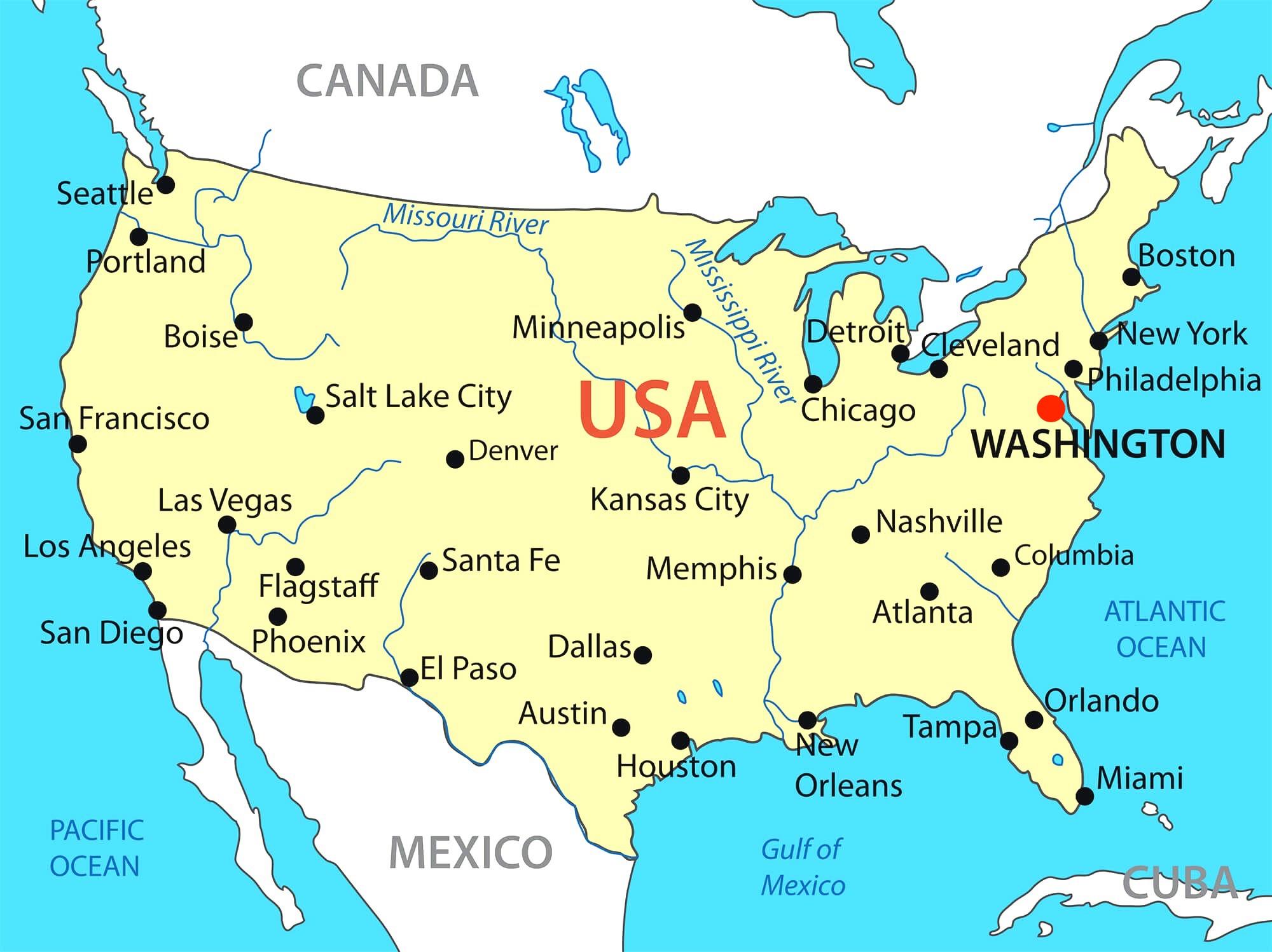
The District of Columbia, affectionately known as Washington D.C., is a city steeped in history, culture, and political significance. Its intricate network of streets, monuments, and landmarks forms a landscape that reflects the nation’s past, present, and future. Understanding the Washington D.C. map is essential for both visitors and residents, providing a framework for exploring its diverse offerings and appreciating its unique character.
The District’s Layout: A Blend of History and Modernity
Washington D.C.’s layout is a testament to its meticulously planned origins. Designed by Pierre Charles L’Enfant in the late 18th century, the city follows a grid system, with broad avenues radiating from the Capitol Building, the heart of American democracy. This radial design, influenced by European city planning, creates a sense of grandeur and order, while also providing efficient access to key locations.
The city’s central axis, encompassing the National Mall, stretches from the Capitol Building to the Lincoln Memorial, showcasing a remarkable collection of national monuments and museums. These iconic structures, including the Washington Monument, the Jefferson Memorial, and the World War II Memorial, are not only historical landmarks but also significant symbols of American identity and values.
Navigating the City: A Guide to Key Landmarks and Neighborhoods
Downtown Washington D.C.: The Seat of Power
The heart of the city, Downtown Washington D.C., is home to the White House, the Capitol Building, the Supreme Court, and numerous government agencies. This area is a hub of political activity, drawing visitors from around the world.
The National Mall: A Tapestry of History and Culture
The National Mall, a sprawling parkland, is a testament to the city’s cultural and historical significance. It houses a multitude of museums, including the Smithsonian National Museum of Natural History, the National Air and Space Museum, and the National Museum of American History. The Mall also serves as a space for public gatherings, protests, and celebrations.
Georgetown: A Historic Charm
Georgetown, a charming neighborhood nestled on the Potomac River, boasts cobblestone streets, historic architecture, and a vibrant nightlife. This historic district is known for its quaint boutiques, upscale restaurants, and lively waterfront.
Adams Morgan: A Multicultural Hub
Adams Morgan, a diverse neighborhood known for its multicultural restaurants, shops, and nightlife, offers a vibrant and eclectic atmosphere. This area is a melting pot of cultures, reflecting Washington D.C.’s cosmopolitan character.
U Street Corridor: A Renaissance of Culture
The U Street Corridor, a historically African American neighborhood, has undergone a cultural renaissance, becoming a hub for music, art, and entertainment. This area is known for its jazz clubs, theaters, and vibrant nightlife.
Beyond the Core: Exploring the City’s Environs
Washington D.C. extends beyond its central core, encompassing diverse neighborhoods with unique character and attractions.
Dupont Circle: A Cosmopolitan Haven
Dupont Circle, a vibrant neighborhood known for its embassies, international restaurants, and lively nightlife, offers a cosmopolitan atmosphere. This area is a popular destination for diplomats, artists, and professionals.
Foggy Bottom: A University Hub
Foggy Bottom, home to George Washington University, offers a vibrant mix of students, professionals, and families. This area is known for its museums, theaters, and proximity to the Kennedy Center.
Capitol Hill: A Historic Residential Area
Capitol Hill, a historic residential neighborhood, is known for its beautiful Victorian homes, charming shops, and vibrant community. This area is a popular destination for families and professionals seeking a quieter lifestyle.
Beyond the City Limits: Exploring the Surrounding Region
The Washington D.C. metropolitan area extends beyond the District, encompassing suburbs in Maryland and Virginia. These areas offer a diverse range of attractions, including historic sites, parks, and shopping centers.
Alexandria, Virginia: A Historic Waterfront City
Alexandria, a historic waterfront city in Virginia, is known for its cobblestone streets, historic architecture, and vibrant waterfront. This city offers a unique blend of history, culture, and modern amenities.
Arlington, Virginia: A Modern Suburb
Arlington, a modern suburb in Virginia, is home to the Pentagon, the Arlington National Cemetery, and the National Mall. This area offers a diverse range of attractions, including museums, parks, and shopping centers.
Bethesda, Maryland: A Suburban Oasis
Bethesda, a suburban oasis in Maryland, is known for its upscale shopping, restaurants, and parks. This area offers a peaceful and luxurious lifestyle.
Understanding the Washington D.C. Map: A Key to Exploration
Navigating the Washington D.C. map is essential for exploring the city’s diverse offerings. Whether you are a history buff, a culture enthusiast, or a political observer, the city’s intricate layout provides a framework for discovering its unique character.
FAQs: Unveiling the City’s Mysteries
1. What is the best way to get around Washington D.C.?
Washington D.C. offers a variety of transportation options, including the Metro, buses, taxis, ride-sharing services, and walking. The Metro is the most efficient way to travel across the city, while buses offer a more comprehensive network. Walking is a great way to explore the city’s neighborhoods and landmarks.
2. What are the most popular tourist attractions in Washington D.C.?
Washington D.C. is home to a multitude of tourist attractions, including the National Mall, the White House, the Capitol Building, the Lincoln Memorial, the Jefferson Memorial, and the Smithsonian museums.
3. What are the best places to eat in Washington D.C.?
Washington D.C. offers a diverse culinary scene, from fine dining to street food. Some popular dining areas include Georgetown, Adams Morgan, Dupont Circle, and the U Street Corridor.
4. What are the best places to shop in Washington D.C.?
Washington D.C. offers a variety of shopping experiences, from high-end boutiques to independent shops. Some popular shopping areas include Georgetown, Dupont Circle, and the National Mall.
5. What are the best places to stay in Washington D.C.?
Washington D.C. offers a variety of accommodation options, from luxury hotels to budget-friendly hostels. Some popular areas to stay include Downtown Washington D.C., Georgetown, and Dupont Circle.
Tips: Maximizing Your Washington D.C. Experience
- Plan your itinerary in advance. Washington D.C. offers a multitude of attractions, and planning your itinerary in advance will help you maximize your time.
- Purchase a Metro card for convenient travel. The Metro is the most efficient way to travel across the city.
- Take advantage of free museum entry. Many of the Smithsonian museums offer free admission.
- Explore the city’s neighborhoods. Washington D.C. offers a variety of neighborhoods with unique character and attractions.
- Pack comfortable shoes. You will be doing a lot of walking while exploring the city.
Conclusion: A City of Endless Discovery
The Washington D.C. map is a key to unlocking the city’s treasures, revealing its historical significance, cultural diversity, and political dynamism. From the grandeur of the National Mall to the charm of Georgetown, the city offers a tapestry of experiences that captivate the imagination. Whether you are a history buff, a culture enthusiast, or a political observer, Washington D.C. promises an unforgettable journey of discovery.
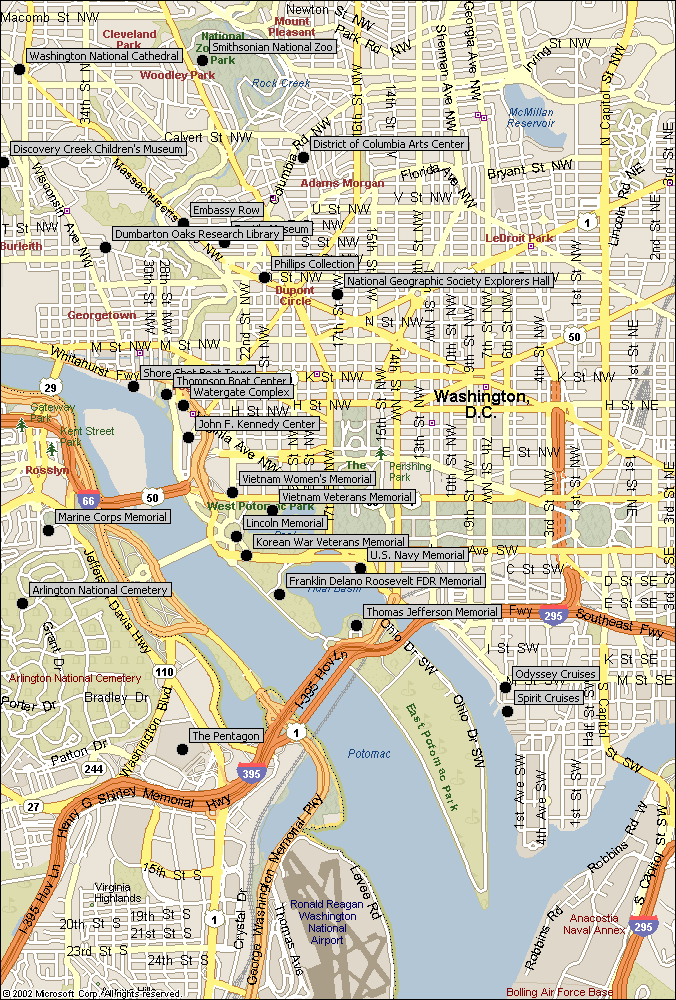


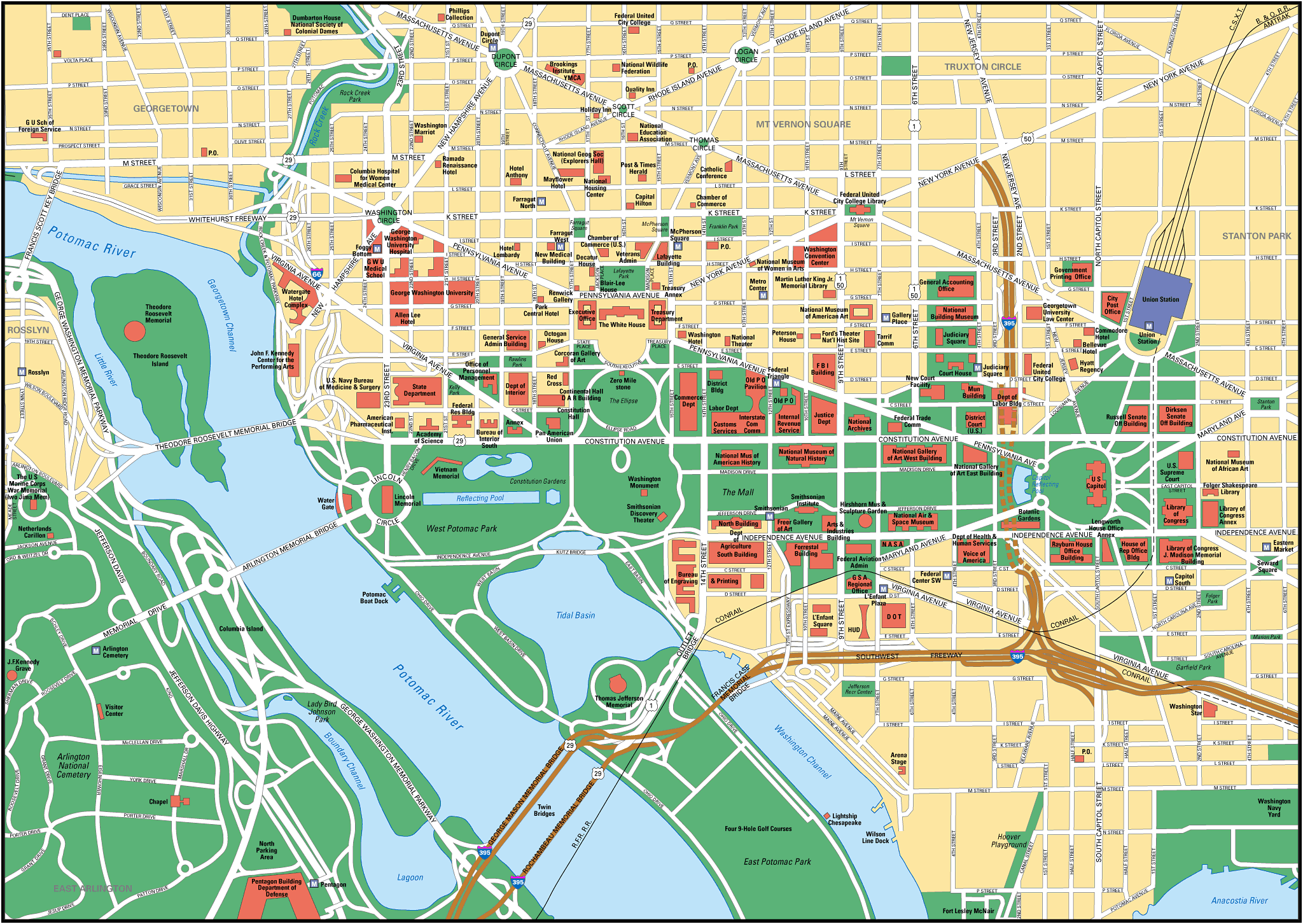
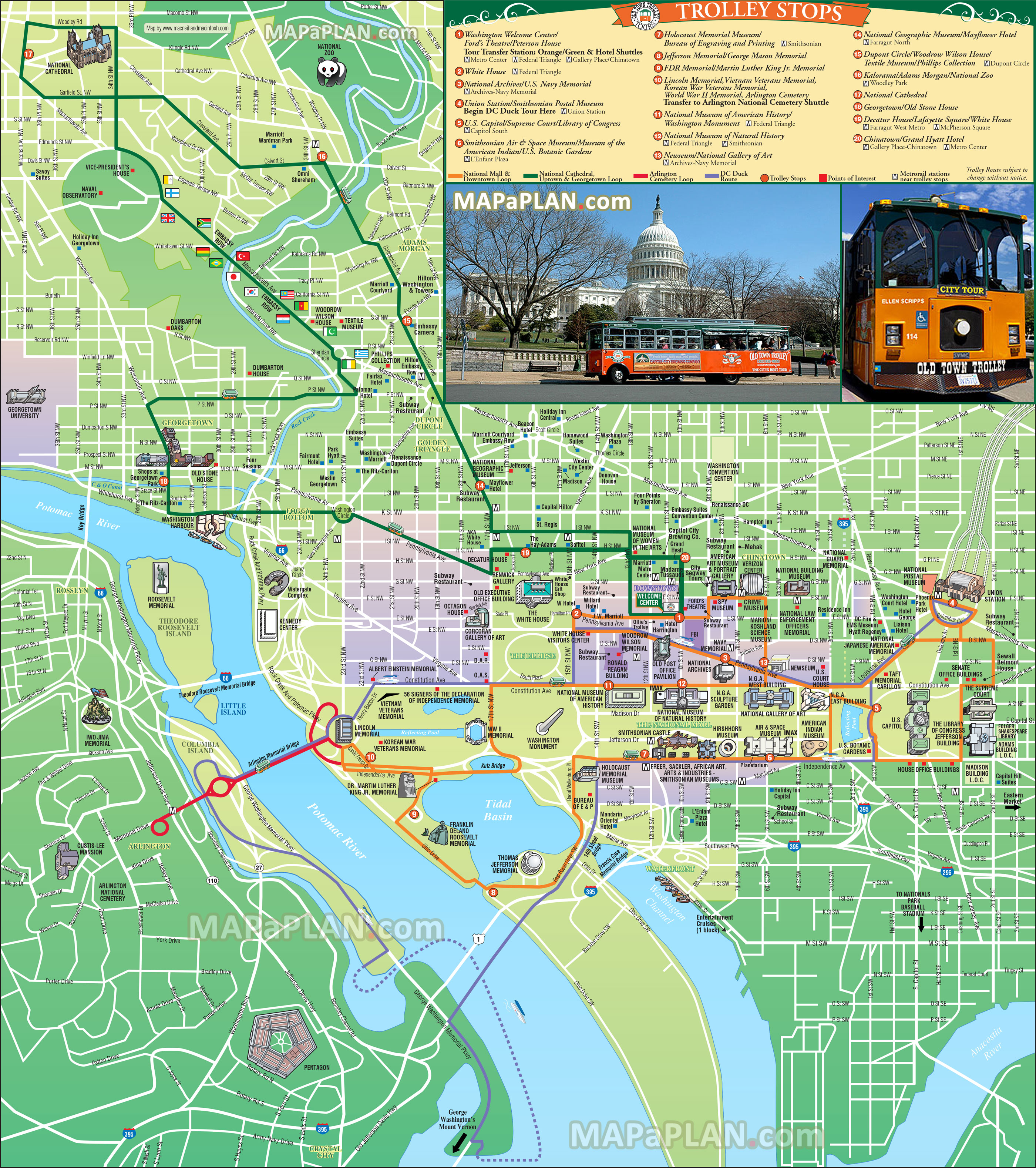
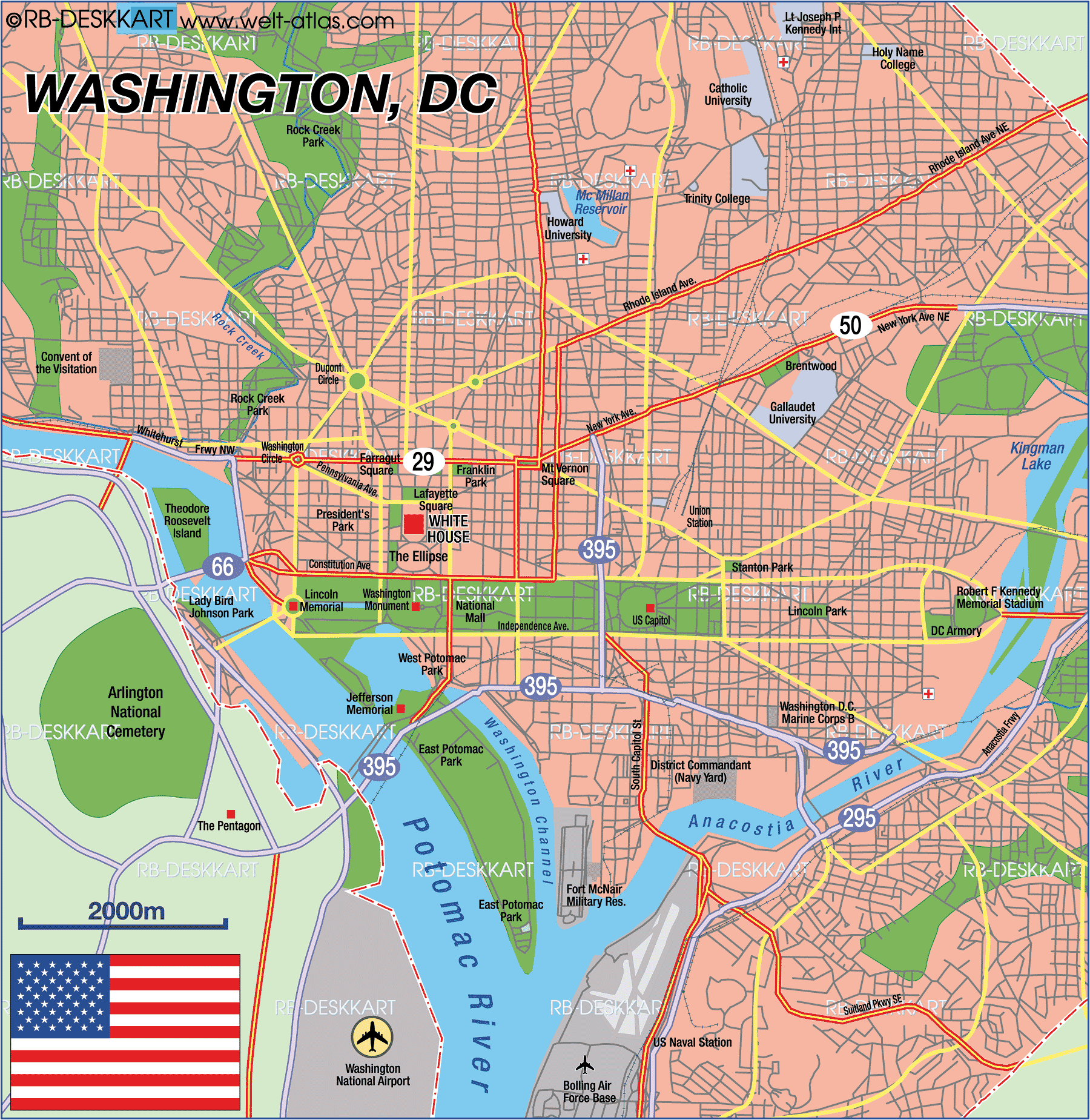
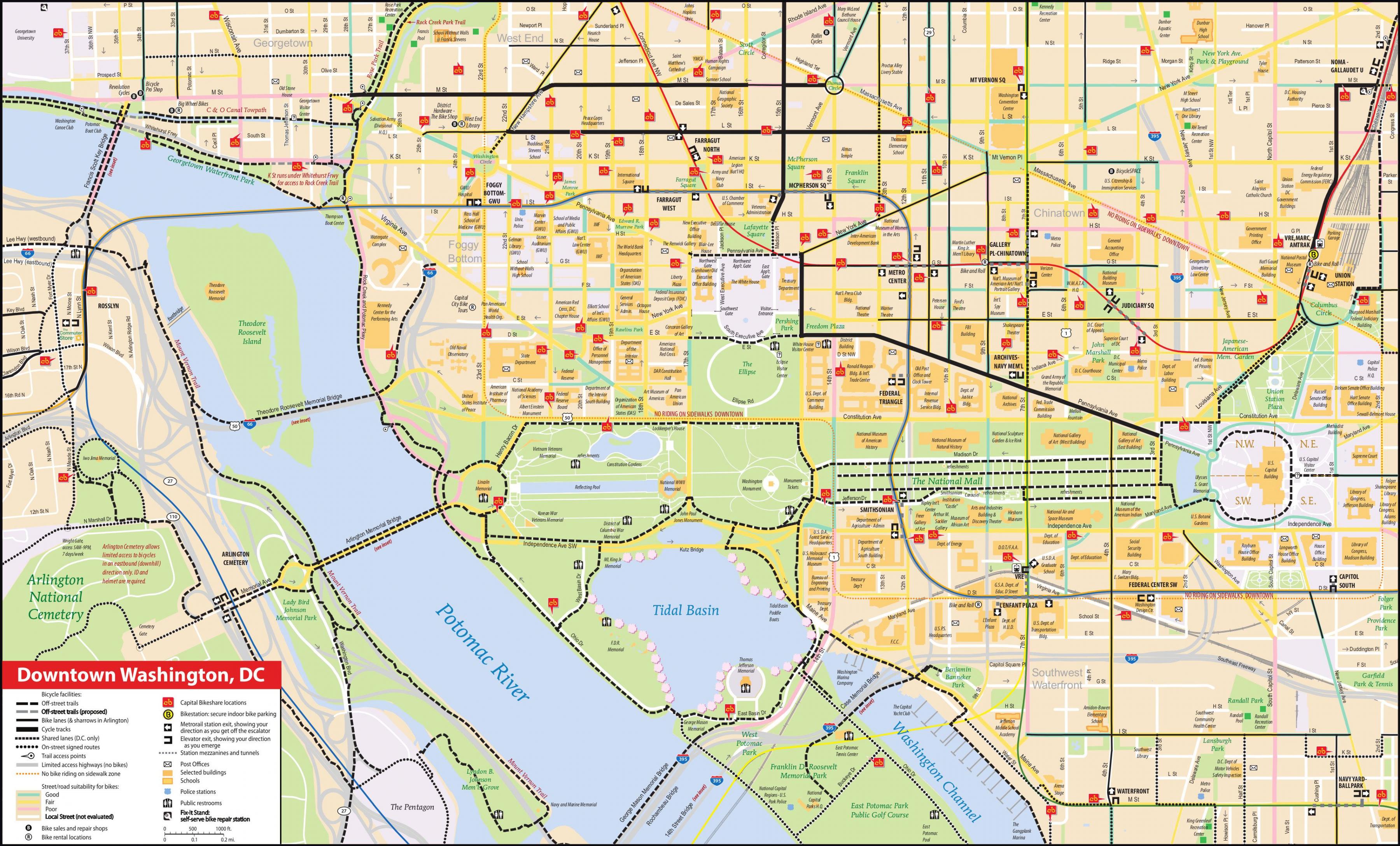
Closure
Thus, we hope this article has provided valuable insights into washington dc map usa. We thank you for taking the time to read this article. See you in our next article!
